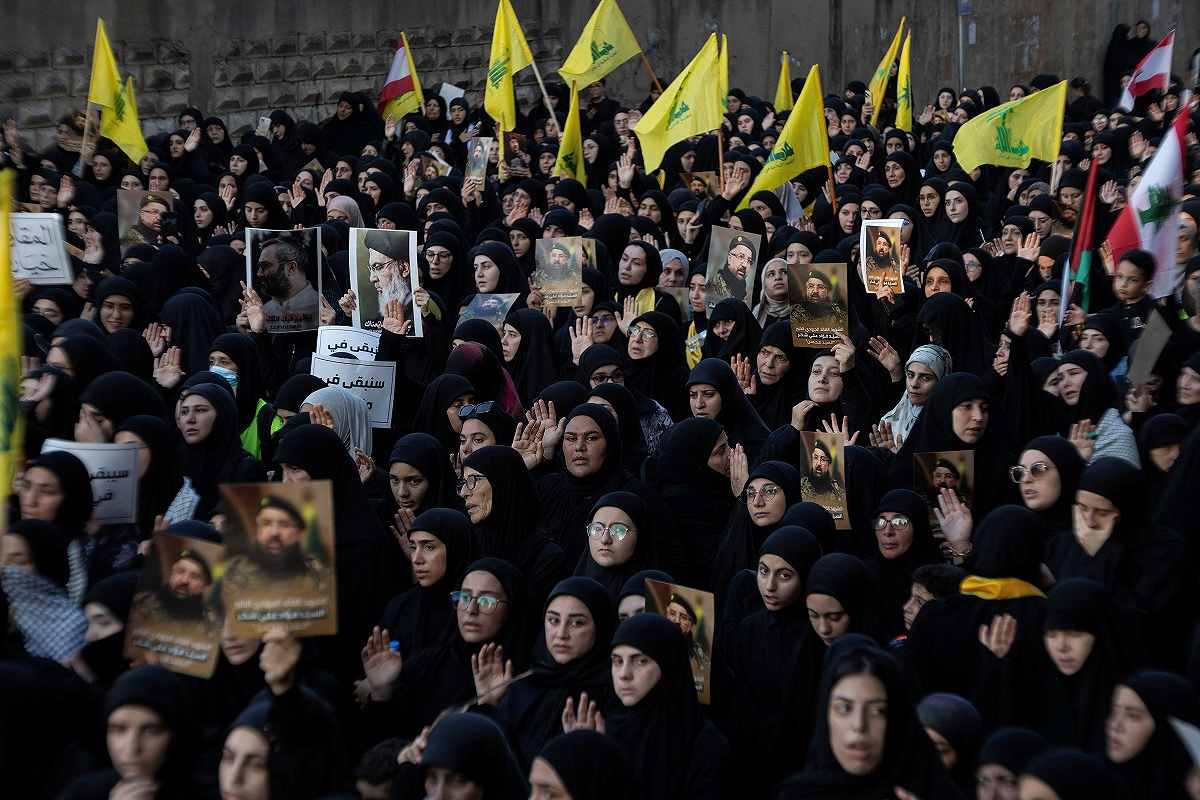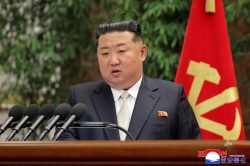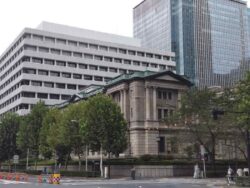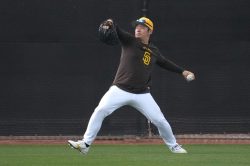
Women mourn and pray during the funeral of Hezbollah senior commander Fuad Shukr, who was killed in an Israeli strike, in Beirut’s southern suburbs, Lebanon August 1, 2024.
16:15 JST, August 2, 2024
BEIRUT, Aug 1 (Reuters) – Lebanon’s powerful Iran-backed group Hezbollah vowed on Thursday a “definite” response to Israel’s killing of its top military commander, saying the strike had crossed red lines and the decades-old rivalry between foes had entered a new phase.
“The resistance cannot but respond. This is definite,” said Hezbollah chief Sayyed Hassan Nasrallah, speaking in a televised address to mark the funeral of the slain commander, attended by mourners clad in black waving the group’s yellow-and-green flag.
“We are looking for a real response, not a performative response, and for real opportunities. A studied response,” Nasrallah said.
An Israeli strike on Hezbollah’s stronghold in the southern suburb of Beirut on Tuesday killed Fuad Shukr, head of the group’s military operations, along with an Iranian military adviser and five civilians.
Just hours after Shukr’s killing, the leader of Hamas, Ismail Haniyeh, was killed in the Iranian capital Tehran in an attack widely blamed on Israel but that Israel has not officially taken responsibility for.
Shukr’s killing was the most serious blow to Hezbollah in nearly two decades and threatened to push the tit-for-tat fighting across Lebanon’s southern border in parallel with the Gaza war into a full-blown regional conflict.
It followed an ultimately-failed diplomatic effort aimed at pushing Israel to avoid a hit on Beirut in the aftermath of a strike on the Israeli-occupied Golan last weekend that killed 12 children and that Israel blamed on Hezbollah.
Nasrallah said the group carried out an investigation that determined it was not responsible for the Golan strike.
He said Israel’s attacks on Beirut and Tehran, coupled with a U.S. strike in a province south of Baghdad, in the space of just a few hours showed the conflict had entered new phase of regional war on multiple fronts.
Nasrallah said some countries, which he did not name, had asked his group to retaliate in an “acceptable” way – or not at all. He denounced those attempts and outlined the response would be proportional to Israel’s targeting of a civilian building in the capital city’s suburbs.
“There is no discussion on this point. The only things lying between us and you are the days, the nights and the battlefield,” Nasrallah added in a threat to Israel.
Ordinary operations against Israel – the near-daily drone and rocket strikes that have taken place since shortly after the eruption of the Israel-Hamas war in Gaza on Oct. 7 – would resume on Friday, he said.
The retaliation for Shukr’s killing would come later.
And those seeking to prevent a wider war should work on a Gaza ceasefire, Nasrallah said, instead of knocking on Hezbollah’s door.
“There will be no solution except via stopping the aggression on Gaza,” he said.
Top Articles in News Services
-

Survey Shows False Election Info Perceived as True
-

Hong Kong Ex-Publisher Jimmy Lai’s Sentence Raises International Outcry as China Defends It
-

Japan’s Nikkei Stock Average Touches 58,000 as Yen, Jgbs Rally on Election Fallout (UPDATE 1)
-

Japan’s Nikkei Stock Average Falls as US-Iran Tensions Unsettle Investors (UPDATE 1)
-

Trump Names Former Federal Reserve Governor Warsh as the Next Fed Chair, Replacing Powell
JN ACCESS RANKING
-

Producer Behind Pop Group XG Arrested for Cocaine Possession
-

Japan PM Takaichi’s Cabinet Resigns en Masse
-

Man Infected with Measles Reportedly Dined at Restaurant in Tokyo Station
-

Israeli Ambassador to Japan Speaks about Japan’s Role in the Reconstruction of Gaza
-

Videos Plagiarized, Reposted with False Subtitles Claiming ‘Ryukyu Belongs to China’; Anti-China False Information Also Posted in Japan
























